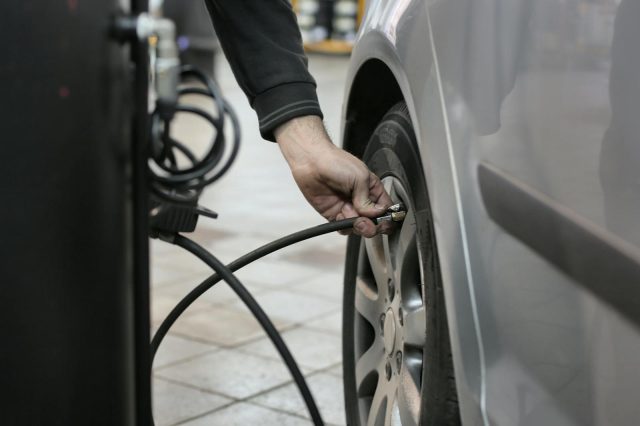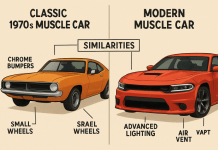
Why Regular Car Maintenance Matters
Car ownership is one of the most common responsibilities for families and individuals. Yet, many underestimate the significant role that regular maintenance plays in ensuring safety and peace of mind on the road. Keeping your car in good shape isn’t just about aesthetics; a proactive approach prevents larger, often costly problems from catching you off guard. For instance, skipping oil changes or forgetting to inspect tires can create hazards during everyday driving, putting you, your passengers, and others at risk. By staying on top of essential care, you enhance reliability and extend the car’s operational life. Trusted service providers, such as Honda dealerships in Georgia, have the expertise to identify worn parts and make necessary adjustments, ensuring your vehicle performs optimally for many years.
Research backed by the U.S. Department of Energy highlights a striking fact—routine maintenance services can increase a vehicle’s fuel efficiency by up to 4%. It not only translates to savings at the pump but also has environmental benefits as fewer emissions are released into the atmosphere. Drivers who commit to a regular maintenance routine report fewer unexpected breakdowns and face less stress regarding sudden mechanical issues. The bottom line: Attentive, scheduled care is an investment in your vehicle’s longevity and your safety.
Key Maintenance Tasks Every Driver Should Know
You don’t have to be a car expert to handle some of the most crucial preventive tasks. For example, regularly checking fluid levels is as simple as pulling out a dipstick or checking the coolant reservoir. Tire care is equally straightforward—most gas stations have air gauges and pumps, and home digital gauges are inexpensive and accurate. Checking filters only takes a few minutes and can improve both engine performance and the air quality in your vehicle. Monitoring brake pads for visible wear and listening for squealing sounds signals when it’s time for replacement. And those glowing dashboard symbols? They’re often early alerts that give you enough warning to address tiny issues before they snowball into big repairs. With practice, drivers build confidence in handling routine checks, saving both money and time while gaining a deeper understanding of their vehicle.
For those new to car maintenance or who feel uneasy about tackling these tasks alone, mechanics and dealerships such as Honda dealerships in Georgia are often willing to demonstrate the basics or offer guidance. Many car manuals now include step-by-step guides, and there is no shortage of comprehensive video tutorials online to walk anyone through the process. A combination of self-reliance and professional support ensures a balanced approach to car care, fostering a greater sense of ownership and responsibility.
How Oil Changes Extend Engine Lifespan
Engine oil isn’t just another fluid; it’s vital for your car’s survival. Its primary job is to keep rapidly moving engine parts working smoothly by reducing friction and carrying away heat. When oil breaks down or becomes contaminated, its performance suffers, and so does your engine. According to experts at Consumer Reports, neglecting oil changes can lead to sludge buildup, blockage of passages, and inadequate lubrication of moving parts, resulting in premature wear, overheating, and, in some cases, catastrophic engine failure.
Many newer vehicles feature oil life monitors, which track actual usage based on driving patterns and the ambient conditions your car endures. As a result, oil change intervals now range from every 5,000 to 10,000 miles, or even beyond with synthetic oils. Ignoring these intervals can void powertrain warranties and lead to costly repairs that could have been easily prevented. By keeping up with routine oil changes, drivers add years to the life of their vehicle and support peak engine performance mile after mile. It’s one of the simplest yet most beneficial habits a car owner can establish.
Tire Care for Better Safety and Fuel Efficiency
Tires are crucial for ensuring road safety, maintaining ride quality, and staying within budget. However, many drivers operate with under-inflated or over-inflated tires, which increases the risk of blowouts and makes cars harder to control. The U.S. Department of Energy indicates that for every 1 PSI a tire is under the recommended pressure, 0.3% of fuel efficiency is lost. Regular tire pressure checks, tire rotation every 6,000 to 8,000 miles, and simple tire tests can significantly improve ride safety. Proper tire condition leads to smoother driving, improved stopping distances, and better fuel mileage. Investing in quality tires and staying attentive is a worthwhile investment that benefits performance and peace of mind.
Brakes and Fluid Checks for Peace of Mind
Brakes are crucial for maintaining a car’s safety, and early inspections can prevent costly repairs and ensure effective stopping. Regular inspections are recommended, especially for drivers who frequently engage in stop-and-go or hilly driving. Bad brakes can increase stopping distance and increase the risk of collisions. Fluids, including brake, transmission, power steering, and coolant, are essential for a car’s mechanical systems. Low or dirty fluids can cause overheating, shifting issues, or weakened braking power. Routine maintenance includes fluid level checks, which can prevent more significant and costly problems in the future. Regular inspections are crucial for avoiding unexpected traffic situations and ensuring a safe driving experience.
Seasonal Inspection Tips to Keep in Mind
- Cold weather—check antifreeze levels, tire condition, and battery charge, as low temperatures can weaken battery cells
- Rainy seasons—inspect windshield wipers, tire tread, and brakes for maximum visibility and stopping power in wet conditions
- Hot months—ensure coolant level is correct, the cooling system is leak-free, and air conditioning is functioning to keep cabin temperatures comfortable
Every change of season presents unique challenges for car owners. For example, the dead of winter causes engine oil to thicken and drains battery power rapidly, while summer heat can push a weak cooling system over the edge. Scheduling seasonal “health checks” at local service centers or performing your multi-point inspections can be the difference between a comfortable drive and an unwanted breakdown. Planning avoids potential emergencies and extends the lifespan of your car by addressing issues before they become substantial problems.
Common Mistakes to Avoid in Car Maintenance
Mistakes are inevitable in driving, but it’s crucial to recognize and correct them. Common mistakes include neglecting oil changes, ignoring warning lights, and using inferior parts. Skipping recommended maintenance can lead to larger repairs. Maintaining clear and accurate maintenance records is crucial for prompt diagnosis and preserving resale value. Setting reminders or keeping a dedicated log can help. The goal is progress, not perfection. Stay proactive and ask mechanics questions, even if they seem trivial, to save money, time, and avoid unnecessary stress.








